At first glance, it appears to be a petty argument over a noun or an adjective, but it also involves a fight over who can claim the legacy of Alexander the Great. And nothing less is at stake than the future of a country—and maybe an entire region.
A dispute that began in the early 1990s between Greece, the birthplace of democracy and a longtime member of the European Union, and its tiny neighbor to the north, has stalled that neighboring country's ability to join the EU and NATO, the world's foremost international security alliance. The dispute centers on whether to call the Former Yugoslav Republic of Macedonia (FYROM) just the Republic of Macedonia, as the country's residents and many international observers do, or whether it should have some other name.
Greece, which bases much of its robust tourism industry on its ancient history, argues that its neighbor should not be permitted to use the name Macedonia because the moniker is reserved for the part of northern Greece where Alexander the Great is believed to have been born around 25 centuries ago. Both countries claim Alexander as part of their historical legacy, a dispute that has sparked nationalist passions and inspired protesters in Greece to march in the streets wearing helmets and breastplates like those allegedly worn by the legendary military leader. On numerous occasions, hundreds of thousands of protesters have marched in Greek cities to wave flags and chant that "Macedonia is Greece" and the name "is in our soul."
Some have suggested that allowing the tiny Balkan country to use the name Macedonia would encourage it to make territorial claims on parts of northern Greece. This fear is voiced frequently, despite the fact that Macedonia has a tiny military that is dwarfed by that of Greece. Athens's military ranked number 28 out of 136 countries scored by the 2018 Global Firepower Index, while Macedonia's ranked number 118.
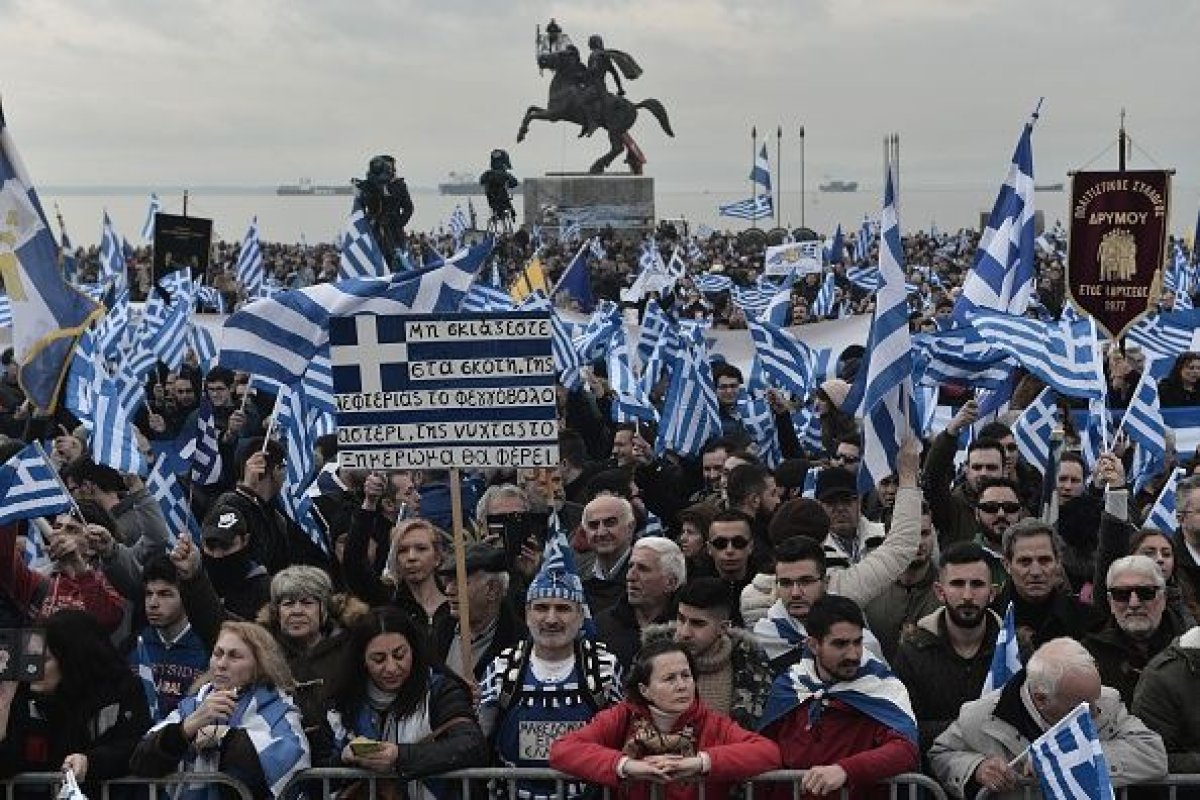
Meanwhile, Twitter trolls have been unleashed to attack any commentator who suggests that the landlocked Balkan country of just 2.1 million inhabitants should be called Macedonia.
"Stop calling this country Macedonia. Macedonia is Greek and always will be Greek. The name is sacred and cant [sic] be just rolled over to the new country," one Twitter user named Angelo tweeted on April 6.
Macedonia, meanwhile, has engaged in its own form of trolling. The government of the former nationalist Prime Minister Nikola Gruevski, who lost power in early 2016 following wiretapping, graft and election-fraud scandals, made a point of erecting statues of Alexander the Great and his parents around the country's capital, Skopje. Highways and airports were also named after Alexander the Great, in what appeared to be a clear message to Greece that Macedonia would not budge on the name issue.
For both countries, the "name dispute," as it's known in international diplomatic circles, is a pressing existential question that strikes at the heart of their national identities.
The consequences for Macedonia—and for stability in the region—have been significant. Greece blocked Macedonia's bid to join NATO in 2008, and has held up Macedonia's EU accession process for over a decade. Macedonia became a United Nations member in 1993, a little over a year after it gained independence from Yugoslavia. But without coming to an agreement with Greece over the name issue, Macedonia has no hope of joining other key parts of the international community.
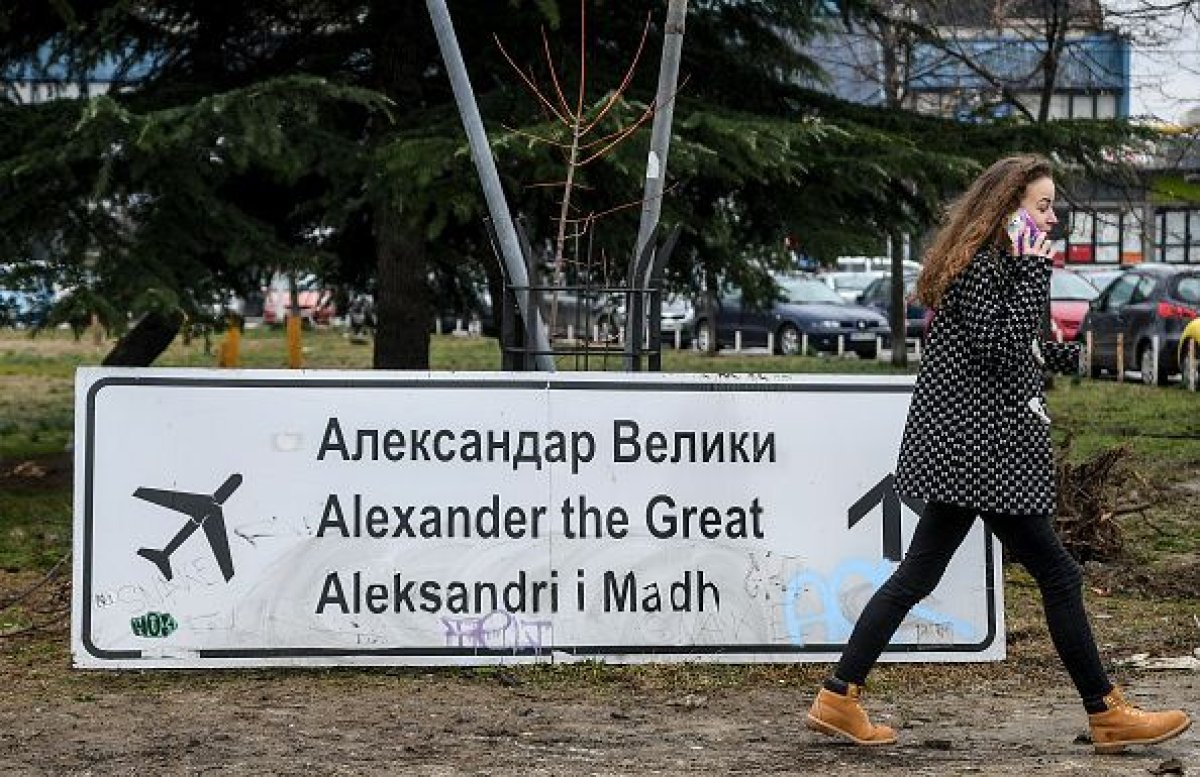
"The Republic of Macedonia was allowed to join the United Nations under a provisional name: Former Yugoslav Republic of Macedonia (FYROM). At the same time, the U.N. appointed a mediator to try to resolve the dispute. In the years since, most of the U.N. members have recognized the country as the Republic of Macedonia," James Ker-Lindsay, a Balkan expert at the London School of Economics, told Newsweek.
"However, Greece has been able to block Macedonia's membership of other international bodies until the name issue is resolved, even though Athens formally agreed not to do so as part of the deal that saw Macedonia join the U.N. For this reason, a final settlement needs to be reached," Ker-Lindsay continued.
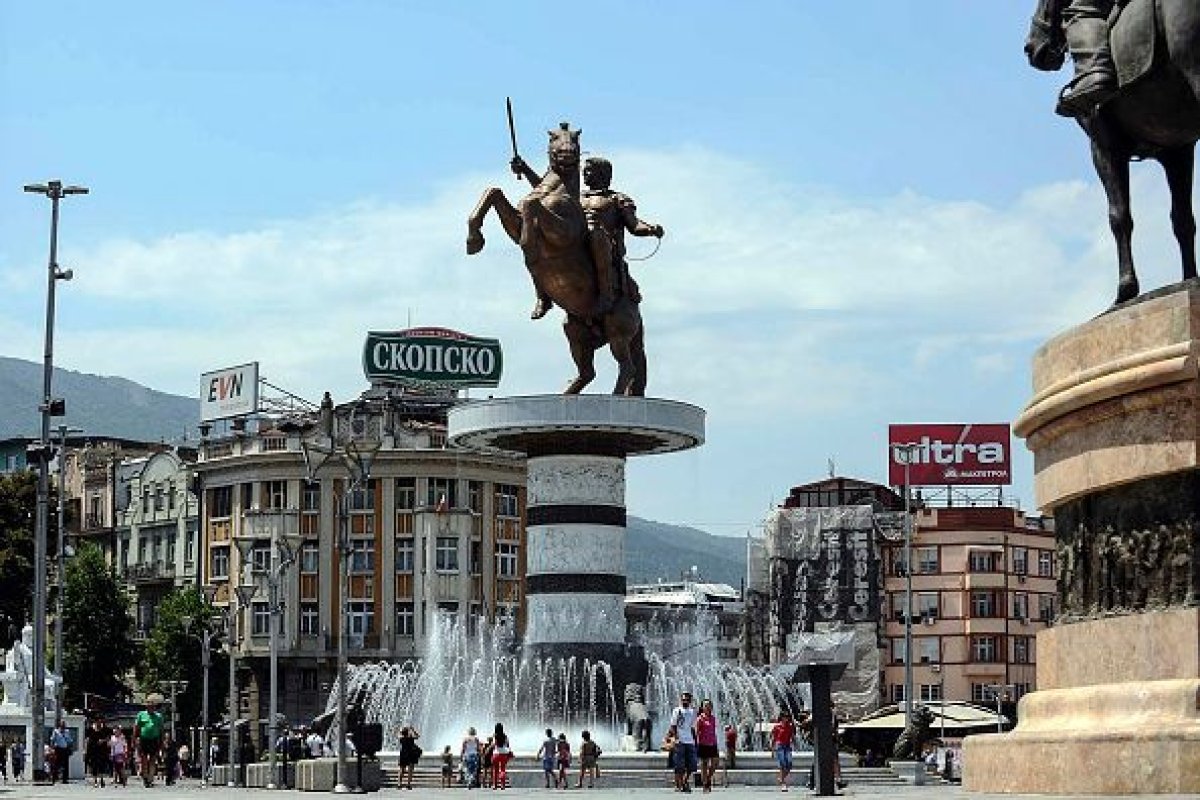
Now more than ever it appears that the two countries are poised to find a lasting solution to the name problem. In March and April, Macedonian Foreign Minister Nikola Dimitrov met with his Greek counterpart, Nikos Kotzias, at least five times to hash out potential options. On Tuesday, the European Commission announced that it would back Macedonia's European Union accession process, a clear indicator that Brussels believes the name issue will soon be resolved.
"My Greek colleague Nikos is probably the minister I see the most. Obviously, we represent two different countries and two different positions, but I sometimes feel we're on the same side because we want to resolve this and we face the same problem that there are forces in our societies that want to pull in the other direction," Dimitrov told Newsweek.
"In Macedonia, we feel there is a sense of urgency to step it up. It's great to talk about history and be proud of our history, but it's time to deal with the present and the future."
The U.N. negotiator, Matthew Nimetz, declined to comment on the negotiations, and Greek Foreign Minister Kotzias did not respond to requests for comment.
The new government in Macedonia, led by Prime Minister Zoran Zaev, has taken a more conciliatory tone than his predecessor. The airport has been renamed, and Zaev has said he's willing to rename the highway and take down the statues of Alexander the Great. Most importantly, he has proposed four potential alternative names for the country: the Republic of North Macedonia, Republic of Upper Macedonia, Republic of Vardar Macedonia, and the Republic of Macedonia (Skopje).
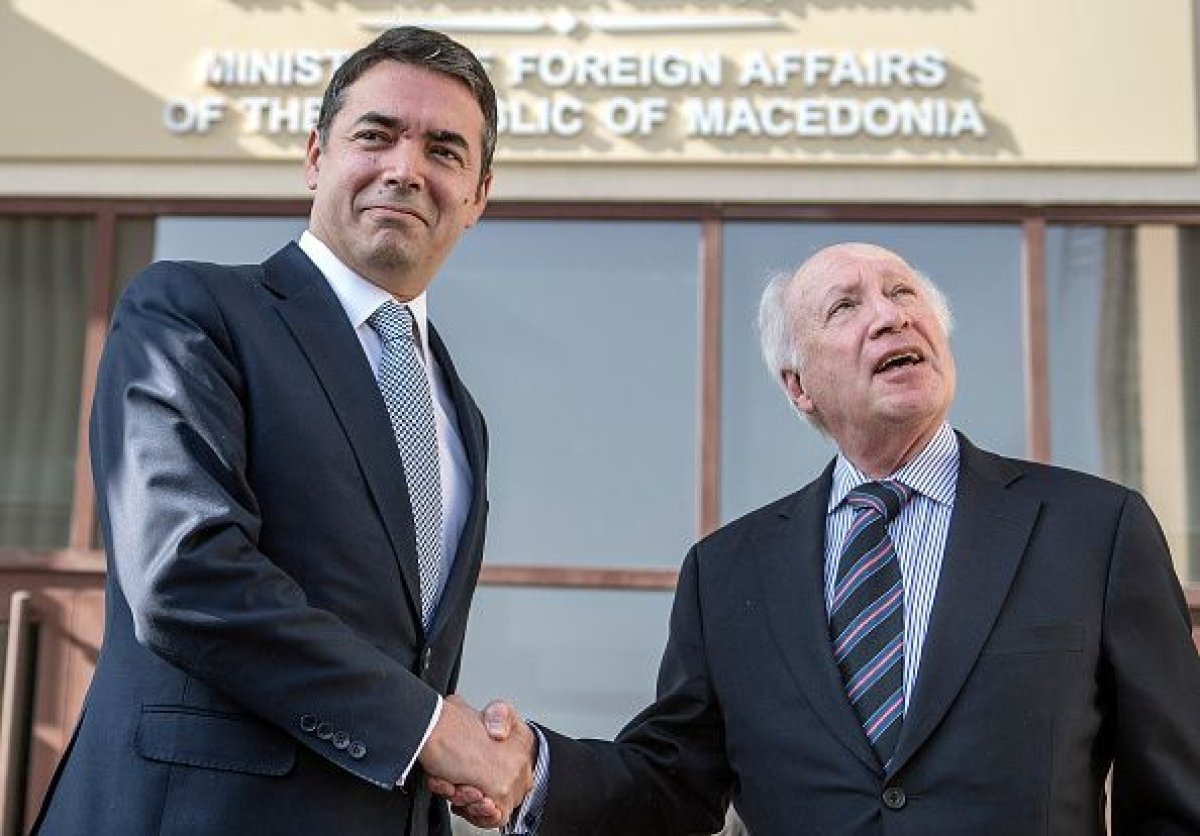
Ultra-nationalist Greeks will ultimately protest any use of the name Macedonia, but the negotiations, which had been abandoned for years, have finally been re-launched.
"Zaev came to power after tight elections promising to restart NATO and EU integration. [That has] key importance for the Albanian bloc, which aligned with him a year ago, and also for the protesters [who were] marching against Gruevski for more than two years," Dimitar Bechev, a Balkans analyst, told Newsweek. "[And] unlike in the 1990s, Greece accepts a composite name for the neighboring country containing 'Macedonia.'"
The belief that the longstanding dispute could be resolved soon was echoed by Dimitrov, who noted that the two countries are working closely to find a compromise.
"The goal is to have a more visible distinction between the country Macedonia and the region Macedonia in Greece, and do that in a way that won't undermine the dignity and identity of both sides and both peoples," Dimitrov told Newsweek.
But despite the progress, some experts noted that the most complex and intricate details are the ones that come at the end of the negotiations.
"Although the Macedonia name issue is primarily about the name of the country, it is not quite as simple as that. In fact, there are three core issues that need to be resolved," Ker-Lindsay told Newsweek.
"Greece wants the 'new' name of the country to be based on Macedonian [language]. In other words, if the name chosen was New Macedonia, even in English the country would be called the Republic of Nova Makedonija," Ker-Lindsay continued. "The second issue, and perhaps even more problematic issue, is the adjective that would be used by the country after a solution. Many Macedonians would be prepared to see the name of the country modified. They are less happy about having to redefine themselves as an 'Upper Macedonian' or say that their language is, for example, 'New Macedonian.'"
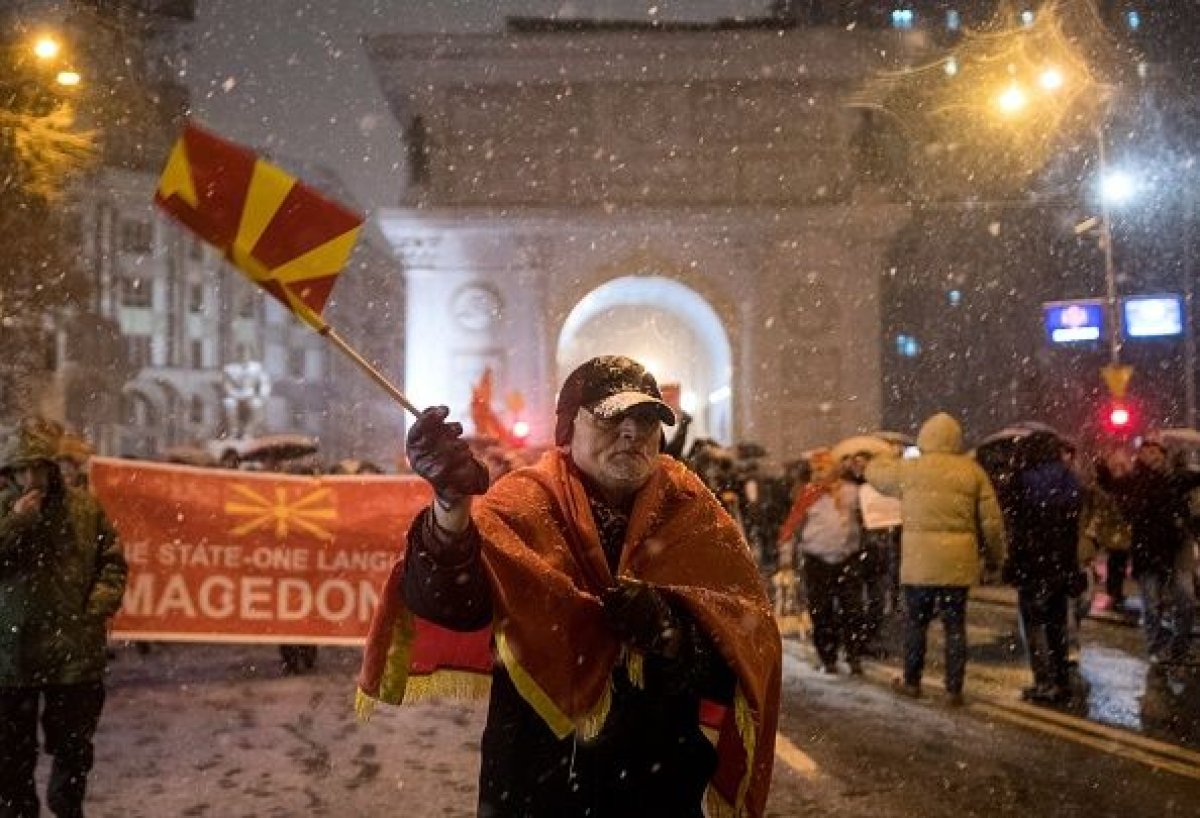
Indeed, some Macedonians have balked at the idea that the international community should refer to the country by a name written in the Macedonian language.
"Greece wants Macedonia to be called Republika Gorna Makedonija, without translation—try pronouncing that in English," Metodija Koloski, president of the D.C.-based organization United Macedonian Diaspora, told Newsweek.
And then there is the thorny issue of whether the country should have one or two names. Macedonians say there should be two—the new agreed-upon name and the Republic of Macedonia—which appears in the country's constitution and could be used internally and with countries that have already recognized that name, including the United States.
"[Greeks] want the Macedonian Constitution to be changed, and want Macedonia to amend their history textbooks. This is unacceptable. Macedonia has full rights of self-determination under the U.N. Universal Declaration of Human Rights and all European Conventions," Koloski noted.
"The best solution, given 137 countries recognizing Macedonia as Macedonia, is for Macedonia to withdraw from the name negotiations, call for the secretary general of the U.N. to cease the office of the special envoy on the name, and urge for a resolution in the General Assembly allowing Macedonia full diplomatic recognition at the U.N.," Koloski added.
Macedonia's government has also traditionally resisted the idea of changing its constitution.
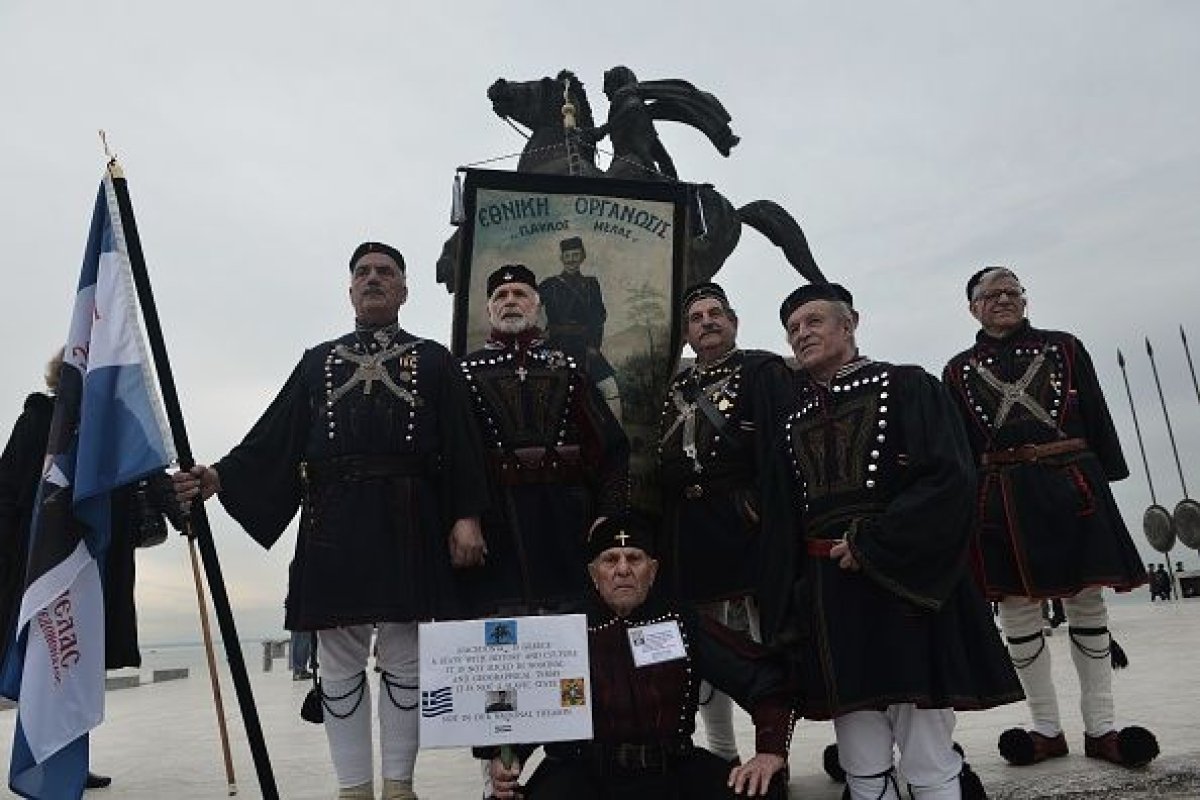
"Greece, on the other hand, insists that the new name must be used in all circumstances. There cannot be two names," Ker-Lindsay told Newsweek. "For what it is worth, the Greek position on this last point is wholly consistent with established international legal practice."
If these issues are not resolved soon, many experts agree the impact will reverberate across the region as Macedonia's integration into the European Union continues to be stalled. Dimitrov said an entire generation of Macedonians has been "lost in the waiting room," since EU integration would bring further economic development and opportunities that would benefit young people.
"[The name issue has] kept Macedonia in limbo since 2008. It didn't necessarily destabilize the region but led to the country's isolation, the rise of corruption and state capture coupled with nationalism," Bechev told Newsweek. "And it is an issue which has poisoned Greek politics for years. [Former Prime Minister Konstantinos] Mitsotakis fell from power in 1993 because of it."
And with both the EU and NATO set to discuss expansion this summer, there is plenty of incentive for Macedonia to speed up the process. The next meeting between Dimitrov and Kotzias is set for early May.
"We have a momentum, we have goodwill on both sides, the context is right and we will definitely do our best to resolve the issue in the coming weeks and months," Dimitrov said. "It's my duty to be an optimist, but I don't want [to] underestimate the differences."
Uncommon Knowledge
Newsweek is committed to challenging conventional wisdom and finding connections in the search for common ground.
Newsweek is committed to challenging conventional wisdom and finding connections in the search for common ground.
About the writer
Cristina Maza is an award-winning journalist who has reported from countries such as Cambodia, Kyrgyzstan, India, Lithuania, Serbia, and Turkey. ... Read more
To read how Newsweek uses AI as a newsroom tool, Click here.








